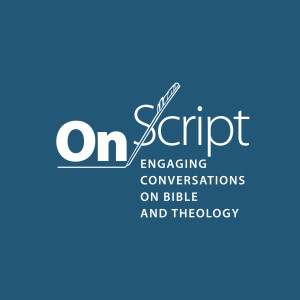
Episode: Larry Hurtado and OnScript host Matthew Bates smash gods. Well, actually Larry is the one who brings the heavy artillery, drawing from his recent Destroyer of the Gods (Baylor University Press, 2016). What does a typical day look like in the life of Larry Hurtado? How does he come up with new scholarly ideas? What made earliest Christianity distinctive?–and why does that matter today? What should we make of Richard Bauckham’s “Christology of Divine Identity”? In his characteristically lucid style, Hurtado answers these questions and more. Join the conversation and find your sensibilities about religion turned upside down.
Guest: Larry Hurtado is a world-renowned expert on Christian origins, the New Testament, and early christology. Born in Kansas City (Missouri), in 1996 Larry Hurtado accepted the professorial chair in New Testament in the University of Edinburgh, where he founded the Centre for the Study of Christian Origins. Since his retirement in 2011, he remains active in research and publications dealing with various questions concerning the origins of Christianity. Arguably his most influential book is One God, One Lord (1988; 3rd ed., Bloomsbury T&T Clark, 2015), which culminated in his magisterial, Lord Jesus Christ: Devotion to Jesus in Earliest Christianity (Eerdmans, 2003). He has also written a pioneering study of the physical features of earliest Christian manuscripts, The Earliest Christian Artifacts (Eerdmans, 2005). In addition to the book under discussion here, Destroyer of the Gods, he has also recently penned Why on Earth did Anyone Become a Christian in the First Three Centuries? (Marquette University Press, 2016).
Book: Larry W. Hurtado, Destroyer of the Gods: Early Christian Distinctiveness in the Roman World (Baylor University Press, 2016). Christianity thrived despite its new and distinctive features and opposition to them. Unlike nearly all other religious groups, Christianity utterly rejected the traditional gods of the Roman world. Christianity also offered a new and different kind of religious identity, one not based on ethnicity. Christianity was distinctively a “bookish” religion, with the production, copying, distribution, and reading of texts as central to its faith, even preferring a distinctive book-form, the codex. Christianity insisted that its adherents behave differently: unlike the simple ritual observances characteristic of the pagan religious environment, embracing Christian faith meant a behavioral transformation, with particular and novel ethical demands for men. Unquestionably, to the Roman world, Christianity was both new and different, and, to a good many, it threatened social and religious conventions of the day. Christianity’s novelty was no badge of honor. Called atheists and suspected of political subversion, Christians earned Roman disdain and suspicion in equal amounts. Yet, as Destroyer of the gods demonstrates, in an irony of history the very features of early Christianity that rendered it distinctive and objectionable in Roman eyes have now become so commonplace in Western culture as to go unnoticed. Christianity helped destroy one world and create another.
The OnScript Quip (our review): Whether one applauds or disdains the values of contemporary Western culture, what we assume to be good, true, and normal has been shaped to a surprising degree by early Christianity. Demolishing taken-for-granted assumptions about what religion was, is, and can be, Hurtado’s provocative exploration deserves a broad audience. — Matthew W. Bates, Quincy University, OnScript
More Episodes
 2019-05-21
2019-05-21
 2019-03-31
2019-03-31
 2019-03-26
2019-03-26
 2019-03-12
2019-03-12
 2019-02-11
2019-02-11
 2019-01-28
2019-01-28
 2019-01-14
2019-01-14
 2018-12-17
2018-12-17
 2018-10-30
2018-10-30
 2018-10-15
2018-10-15
Create your
podcast in
minutes
- Full-featured podcast site
- Unlimited storage and bandwidth
- Comprehensive podcast stats
- Distribute to Apple Podcasts, Spotify, and more
- Make money with your podcast
It is Free
- Privacy Policy
- Cookie Policy
- Terms of Use
- Consent Preferences
- Copyright © 2015-2024 Podbean.com





